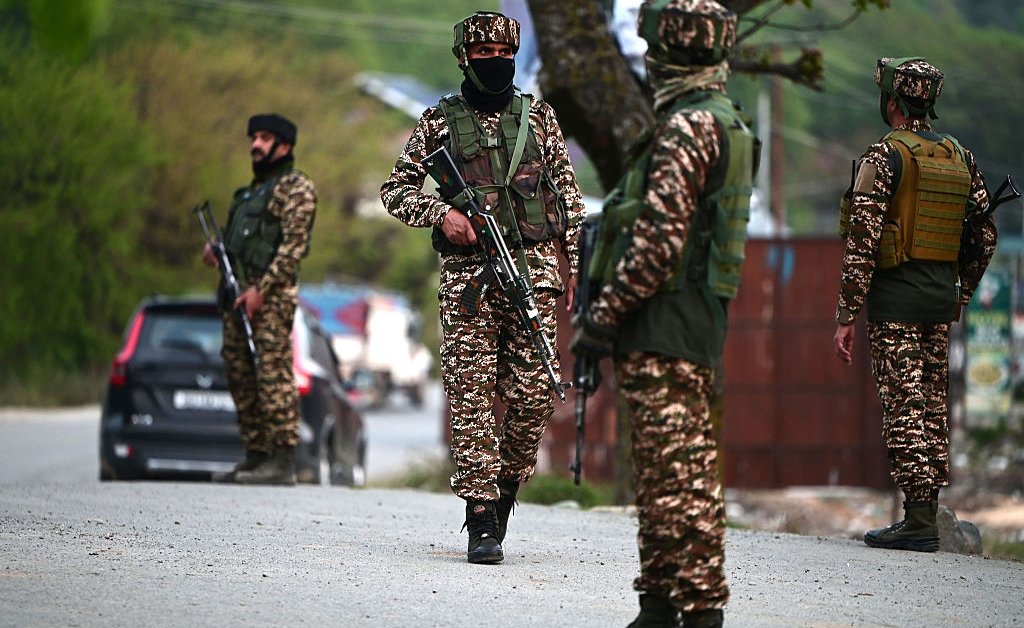How can the Pakistani India crisis a vortex
INadia and Pakistan are in their worst crisis after years after the deadly attack last week in the disputed Kashmir area. The growing tensions are unlikely to war, but the world must be concerned about the dangerous risks of escalation offered by two nuclear armed vivs.
On April 22, the gunmen attacked tourists who move in a picturesque Marj near the town of Bahajam in Kashmir, the Indian managers. About 26 people – 25 of the Indians and one of the Nepalese. New Delhi blamed Pakistan for its care for the massacre. Islamabad denied any involvement. The interface of the resistance, which is the costume that New Delhi considers as an agent of the Pakistani jihadist group Lashkar-E-TAIBA, is initially responsible for Telegram, before retracting the claim.
Both India and Pakistan are ready in the Islamic majority region, which is partially controlled by India and Pakistan, but both claim it completely.
On Sunday, and Indian Express It quoted an unknown “great source” in the Indian government, which warned, “There will be a military revenge.” On Wednesday, Pakistan, the Minister of Information, wrote to X as a rare position late at night, that his government was “reliable intelligence” that India would take a military action within 24 to 36 hours.
This deadline passed without an accident. According to the Indian and Pakistani military officials, the Indian and Pakistani officials continued via the hotline, indicating that the communication channels are open. Meanwhile, the main global capitals, including Washington and Beijing, called for the escalation of the escalation. It is a position that puts India, which wants a free hand to respond to the attack as he wishes, on the back foot.
However, it will be wrong to conclude that the worst has ended. Pahalgam’s attack was exceptionally brutally, as many people fired at his head, similar to implementation. Civilians (much lower than tourists) rarely target Kashmir, and according to what was stated, Hindu victims were distinguished for their religion. The tragedy has struck a nerve throughout India, from the common people to military officers and government officials.
For these reasons, Indian military action is still a strong possibility. The Hindu Hindu national government may suffer from significant political damage if it sits at its hands, especially after it has repeatedly designed it to return.
If India pulled the trigger, the Pakistani response is guaranteed. The Pakistanis are angry for blame it for a terrible thing that they believe that their country has nothing to do with. (Pakistan evaluated extremist actors in Kashmir, but New Delhi did not provide evidence of Pakistani collusion in the last attack.) The country will look at any Indian strike as an unjustified provocation. Also, the civil and military leadership in Pakistan is not popular at home. The attack will give Islam Abad an additional incentive to respond, and to mobilize citizens around science.
The diplomatic space between the two countries is shrinking. India and Pakistan have suspended two major two -two agreements: the endos -Water -tars treaty, cross -border water agreement; Simla agreement, which calls for peaceful conflict resolution.
Fortunately, nuclear weapons are still deterrent. India and Pakistan fought all their hot wars before the official nuclear forces became in 1998. But they were completely comfortable using increasing levels of limited power against each other in recent years. In 2016, the Indian commando crossed to Kashmir, which is run by Pakistan to perform “surgical strikes” on militant targets. In 2019, after an attack on the Indian director Kashmir, the Pakistani jihadist group Jaish-E-Mohammed claimed 40 Indian security forces, India carried out air strikes on Pakistani-first territory since 1971.
In the face of these facts, New Delhi may choose to expand the scope of secret activities – such as the targeted assassinations of the militants in Pakistan – which enables it to achieve tactical goals with no reasonable denial. India may also take a stronger step than armed groups in Pakistan to meet the public’s demand for work.
New Delhi has no intention of provoking a hot war. But any mistakes or miscalculation by either side may mean that all bets are suspended.




Post Comment